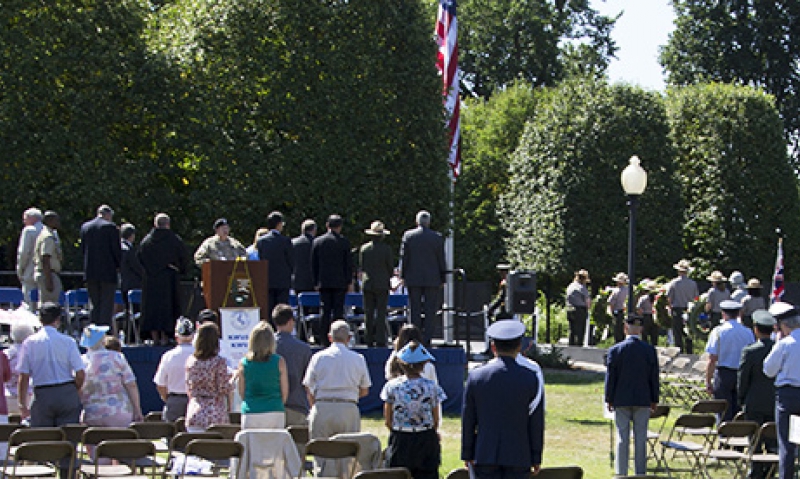
Legion attends Korean War ceremony
On July 27, 1953, two military generals, Nam Il from the Korea People's Army and William K. Harrison, Jr. of the United States Army, signed a lengthy document "in the interest of stopping the Korean conflict, with its great toil of suffering and bloodshed on both sides, and with the objective of establishing an armistice which will insure a complete cessation of hostilities and of all acts of armed force in Korea until a final peaceful settlement is achieved."
The document, which went to great lengths to define and specify in specific detail the terms that have since divided the Korean peninsula into a democratic South and a communist North, was the Korean War Armistice. It is still in effect today, awaiting the "final peaceful settlement" of a conflict that began in the summer of 1950. The engagement was not, technically, an American war, but an action by the newly established United Nations. About one million servicemembers from 17 U.N. member nations bore arms in the conflict, yet U.S. troops suffered the most. Of the 155,000 Allied casualties, more than 137,000 were Americans; almost 37,000 dead, more than 92,000 wounded, 4,400 taken prisoner and 3,700 listed as missing.
Each July 27, the armistice day anniversary is marked by a gathering at the Korean War Veterans Memorial, near the Lincoln Memorial in Washington, D.C. The tradition was begun when the memorial was dedicated in 1995. This year, a few dozen Korean War veterans, mostly from the United States and South Korea, were honored in a ceremony attended by family members and friends, servicemembers from several United Nations countries, representatives from veterans service organizations and curious spectators, many from Korea and neighboring Asian nations.
Young musicians and dancers from the newly opened Korean Cultural Center in Washington entertained attendees prior to the solemn ceremony. Speakers included His Excellency Duk Soo Han, the Republic of Korea's Ambassador to the United States, who reminded the audience of the unresolved nature of the Korean War and the continued belligerency of North Korea. The morning event ended with a wreath laying by representatives of U.N. member nations and others, including Joe Grassi from The American Legion's National Security/Foreign Relations Division.
The ceremony's audience was attentive and reverent, but sparse. The large of number of empty chairs fronting the dais was a reflection of the rapidly declining number of surviving Korean War veterans and, perhaps, an indication that "the forgotten war" is often forgotten by many.
Toward the end of the ceremony, BGen. David Fox of the District of Columbia Defense Force, the event's master of ceremonies, announced sadly that a similar gathering honoring Korean War veterans scheduled for the afternoon at Arlington National Cemetery had been canceled. Organizers cited miscommunication on the part of cemetery officials.
